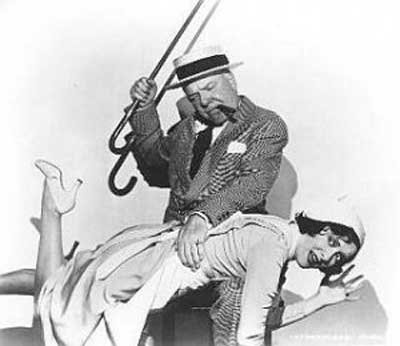
Spanking is a violation of the nonaggression principle, but it is also used as a verdict against Christianity’s compatibility with anarchism as well as a verdict against anarchy’s compatibility with “proper parenting”.
(There isn’t much to say on this topic, but this is the forum to say it.)
The two verses frequently cited as commanding child abuse are Proverbs 13:24 (apocryphally read, “spare the rod, spoil the child”),
He that spareth his rod hateth his son: but he that loveth him chesteneth him betimes
and Proverbs 23:13:
Withhold not correction from the child: for if thou beatest him with the rod, he shall not die.
To interpret these verses accurately, one would have to know what the words mean. The rod in chapter 13 is the same as the rod in chapter 23. This rod is a scepter, with which the father of the house is expected to rule his household and, yes, if he spares it, or avoids it, order in his house will collapse.
For another thing, both of these verses were written while Levitical law was intact and upheld. Deuteronomy 21:18-21 says that a child shall be put to death for being rebellious, stubborn, or parasitic (“he is a glutton and a drunkard”), and Leviticus 20:9 says that a person who curses his parents is to be put to death. In a tightly-knit community in which younger children could be influenced by the acts of older children and men were raised to conquer nations, death was the wage for unruliness and a lack of discipline. Why would spanking need to be enforced?
Christ, himself has referenced Proverbs and yet, his reaction to the boy possessed by demons, who more than likely engaged in baneful activity to acquire such spirits, was not a beating rod or a suggestion to his parents that he be spanked. He cast them out and healed him. Why would the Father go against His own Word in such a way? A parent who acts faith is more productive than a parent who acts in wrath. Spanking is an act of wrath.
There are also biblical accounts of his childhood, as well as that of Timothy, Jonah, David, Solomon, Ishmael, and Isaac. Yes, some of these men are post-Proverbs figures, and some are pre-Proverbs figures, but these children, while the lot of them were imperfect, did not become prominent figures because they were beaten by their parents, but raised on scriptural principles, so that they would neither curse their parents, nor be of any burden to them.
God values justice as well as love.
We are told to obey the governing authorities because they do not bear the "rod" in vain.
The family has its own governing authorities, who are responsible for bearing the rod responsibly.
Downvoting a post can decrease pending rewards and make it less visible. Common reasons:
Submit
There is the problem of the verbiage itself. The rod is a shepherd's tool. It was not used to beat, but to guide. Some translation use stick or cane rather than rod. Which more directly implies physical punishment. But the Proverbs were also contextual to the people and era. And it does not specify when to make use of such force. Which could be justified, contextually, in the face of aggression or physical danger/threat.
Downvoting a post can decrease pending rewards and make it less visible. Common reasons:
Submit